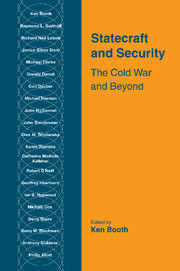Introduction
Published online by Cambridge University Press: 06 October 2009
Summary
This is a crucial time to reflect on the recent past and long-term future of international relations. During the Cold War there was an Iron Curtain in all our heads (to a lesser or greater extent), but no sooner had it been dismantled than we become burdened by fresh disquiets. The West, and the rest of the industrialised world, slipped from Cold War pressures to post-Cold War preoccupations almost without drawing breath. For the others it was simply dependency as usual. It was therefore easy to move towards the future on the basis of traditionalist axioms and half-digested lessons about the present. For Western policy-making elites in particular, as the ostensible ‘winners’ of the Cold War, the aims and assumptions of international politics remain shaped to some degree by the experiences of the half-century of Cold War. But what exactly were those experiences? And what conclusions should be drawn from them? The problem has been pithily expressed by Michael MccGwire as follows: ‘To be sure “we” won and “they” lost, and to that extent the Soviet Union was proved “wrong”: but were “we” therefore right?’
- Type
- Chapter
- Information
- Statecraft and SecurityThe Cold War and Beyond, pp. 1 - 26Publisher: Cambridge University PressPrint publication year: 1998
- 1
- Cited by



